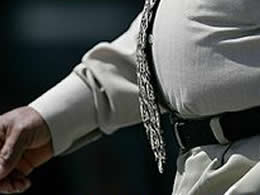Discover all about the causes of stress. Stress is a disease of modern life. Stress causes two reactions: fight or escape. List of causes of stress.
Causes of stress: four basic sources
We can experience stress from four basic sources:
The Environment (source of stress #1)
The environment can bombard you with intense and competing demands to adjust. Examples of environmental stressors include weather, noise, crowding, pollution, traffic, unsafe and substandard housing, and crime.
Social Stressors (source of stress #2)
We can experience multiple stressors arising from the demands of the different social roles we occupy, such as parent, spouse, caregiver, and employee. Some examples of social stressors include deadlines, financial problems, job interviews, presentations, disagreements, demands for your time and attention, loss of a loved one, divorce, and co-parenting.
Physiological (source of stress #3)
Situations and circumstances affecting our body can be experienced as physiological stressors. Examples of physiological stressors include rapid growth of adolescence, menopause, illness, aging, giving birth, accidents, lack of exercise, poor nutrition, and sleep disturbances.
Thoughts (source of stress #4)
Your brain interprets and perceives situations as stressful, difficult, painful, or pleasant. Some situations in life are stress provoking, but it is our thoughts that determine whether they are a problem for us.
Causes of stress: Types of stressors
Situations that are considered stress provoking are known as stressors. Stress is not always a bad thing. Stress is simply the body’s response to changes that create taxing demands. Many professionals suggest that there is a difference between what we perceive as positive stress, and distress, which refers to negative stress. In daily life, we often use the term “stress” to describe negative situations. This leads many people to believe that all stress is bad for you, which is not true.
Positive stress has the following characteristics:
- Motivates, focuses energy
- Is short-term
- Is perceived as within our coping abilities
- Feels exciting
- Improves performance
Negative stress has the following characteristics:
- Causes anxiety or concern
- Can be short or long-term
- Is perceived as outside of our coping abilities
- Feels unpleasant
- Decreases performance
- Can lead to mental and physical problems
It is somewhat hard to categorize stressors into objective lists of those that cause positive stress and those that cause negative stress, because different people will have different perceptions and reactions to particular situations. However, by generalizing, we can compile a list of stressors that are typically experienced as negative or positive to most people, most of the time.
List of sources of stress (causes of stress)
Examples of negative personal stressors can include:
• The death of a partner• Filing for divorce• Losing contact with loved ones• The death of a family member• Hospitalization (oneself or a family member)• Injury or illness (oneself or a family member)• Being abused or neglected• Separation from a spouse or committed relationship partner• Conflict in interpersonal relationships• Bankruptcy/money problems• Unemployment• Sleep problems• Children’s problems at school• Legal problems• Inadequate or substandard housing• Excessive job demands• Job insecurity• Conflicts with team mates and supervisors• Lack of training necessary to do a job• Making presentations in front of colleagues or clients• Unproductive and time-consuming meetings• Commuting and travel schedules.
Examples of positive personal stressors might include:
• Receiving a promotion at work• Starting a new job• Marriage or commitment ceremony• Buying a home• Having a child• Moving• Taking or planning a vacation• Holiday seasons• Retiring• Taking educational classes or learning a new hobby
Internal sources of stress and anxiety
Stressors are not always limited to situations where some external situation is creating a problem. Internal events such as feelings, thoughts, and habitual behaviors can also cause negative stress.
Common internal sources of distress include:
- Fears (e.g., fears of flying, heights, public speaking, chatting with strangers at a party)
- Repetitive thought patterns
- Worrying about future events (e.g., waiting for medical test results or job restructuring)
- Unrealistic or perfectionist expectations
Habitual behavior patterns that can lead to stress:
- Over scheduling
- Failing to be assertive
- Failing to set and maintain healthy boundaries
- Procrastination and/or failing to plan ahead
Share this page with your friends:
Help your friends and family to know themselves better. Share this page, they will appreciate it... and all thanks to you! 100% stress advices and free tests :-)
